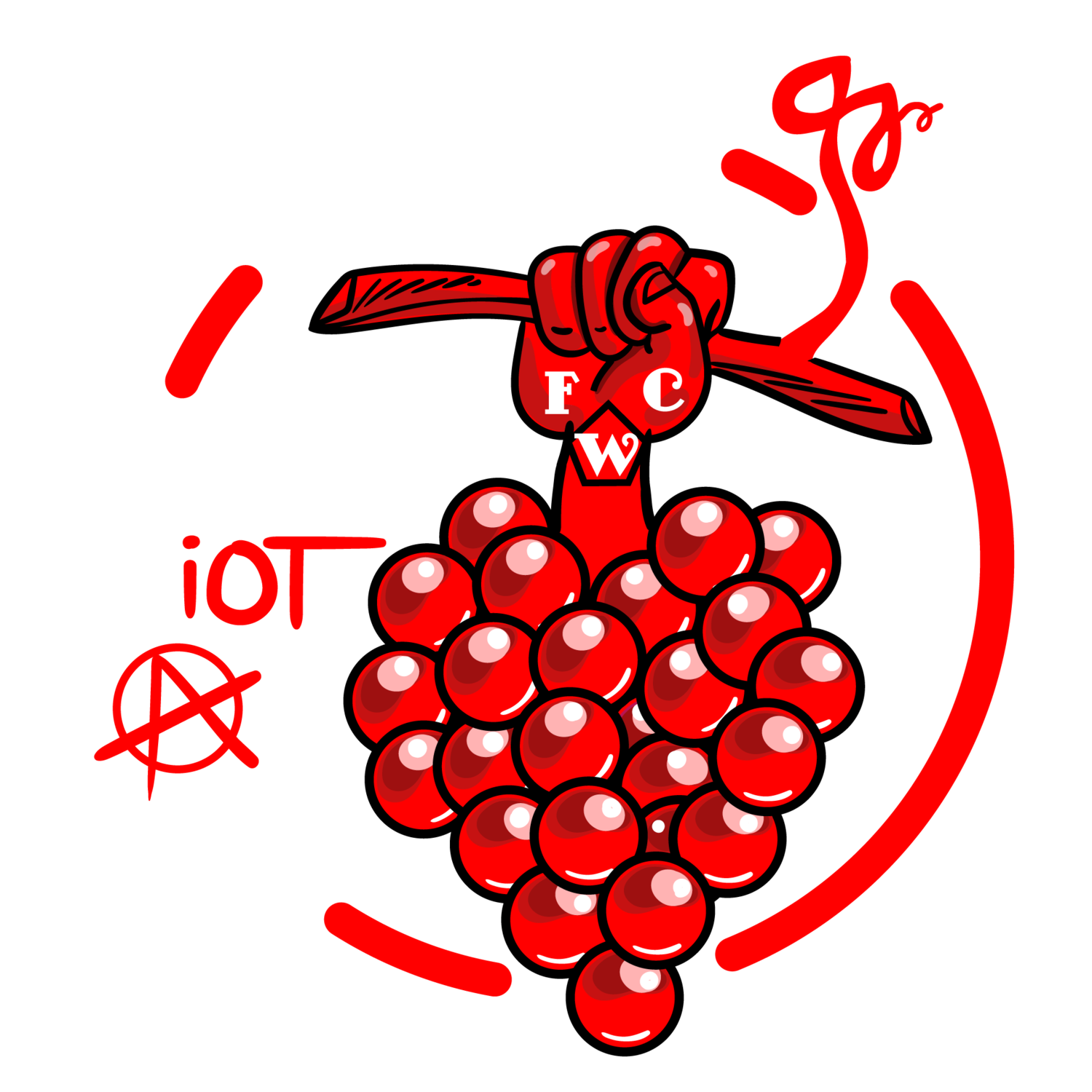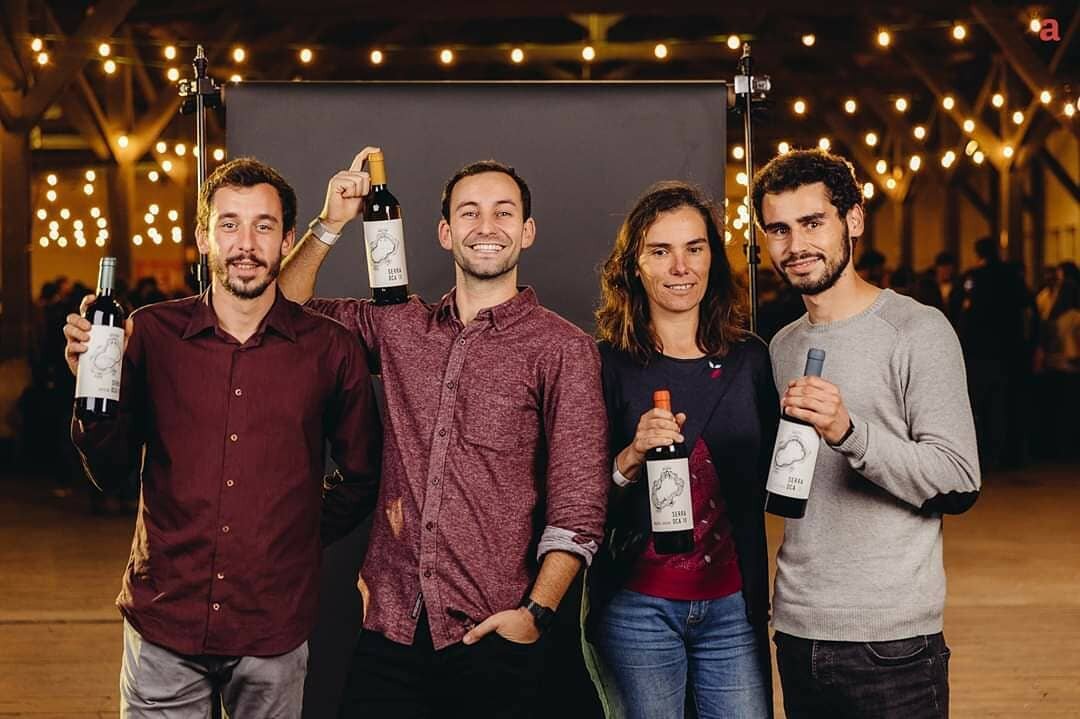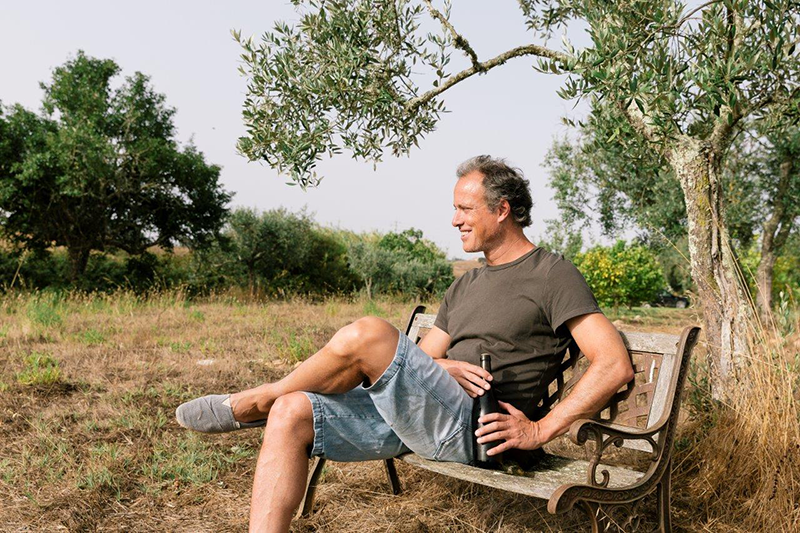Aparte Wines
Three friends
The project was born when three friends discovered a wine barrel that was left “apart” in a wine cellar in Palmela. The wine was produced during their internship and, six months later, when they came back to the winery, magic happened!
It was that wine and that barrel, that made 3 ISA viticulture and enology master’s degree students become friends and decide to start a journey through the wine world, back in 2018. This project is based on handmade creations, discovering through new experiments, bringing art into wine science, transforming the way to communicate and experience the wine bottle. It is by looking to wine as aesthetic phenomena, that they feel the need to connect with different artists each year, so they can express graphically their interpretations of their liquid creations.
The grapes are handpicked and selected in the vineyard by us, coming from winegrowers who respect the environment and the surrounding nature. In the winery, they treat wines with respect, and with no industry tricks, only the basics tools. They do naturally-made wines, with science and passion.
Serra de Oca
A family farm
They are near the Northwest slope of Serra de Montejunto, where they sought inspiration for the name of the wines. Their vineyards have a strong influence from the microclimate of the mountain because the prevailing winds from the Atlantic Ocean are blocked by this natural barrier and cause high levels of rain and morning fog, even in summer, which reflects in the freshness of their wines.
They have 20 hectares of vineyards, all surrounding the set of farmhouses. Their soils are clay-limestone, of fine clay, and have vineyard plots with sun exposure for all quadrants. After a few years without winemaking, they resumed winemaking in 2013 and created the Serra Oca brand. They intend to make quality wines, producing a total of about 10,000 bottles/year. They only use about 10% - 20% of the grape production for their wines -selling the rest of the grape production to partners who also value their quality.
Their great-grandfather Manuel Vivas bought Quinta do Olival da Murta in the 1940s and increased his property and buildings. A modernized the wine cellar and the stage cellar. Today the farm belongs to three sisters, their mother, at this moment, they have five cousins working here, doing a little bit of everything on the farm.
Quinta da Serradinha
First organic certified producer in portugal
António Marques da Cruz leads his family's winery located near the town of Leiria, in the northern part of the appellation of Lisboa. When it comes to producing wine as naturally as possible in both the vineyards and the winery, António is one of the leaders not just the region, but Portugal as a whole being the first organic certified winery in the country.
Quinta da Serradinha is a very small winery, with an average of 15,000 bottles per year. He makes a few fantastic, red, low-alcohol, earth-driven wines made with the indeginous grape varieties such as Baga, Castelao, Arinto, Encruzado, Fernao Pires among some others.
Vale de Capucha
The fifth-generation is a cut with the past
Pedro Marques is the fifth-generation in a winemaking family based in Torres Vedras just a few kilometers north of Lisbon. Pedro works on about 13 hectares of vineyards, planted mainly with White local varieties such as Arinto, Viosinho, Gouveio, Alvarinho which adapt perfectly to the Atlantic climate conditions. Pedro without any doubt makes some of the best White Wines in Portugal, he is able to make you feel with each sip the “taste” of the Atlantic Coast in your palate. For almost two centuries this property has been a benchmark of success in the wine industry in the region. His mission is the production of natural wines in its attributes, adopting environmentally friendly farming techniques focusing (unlike his predecessors) on well crafted small volumes rather than quantity.
Tiago Teles
authentic wines that reflect their origin
Tiago did not come from a winemaker’s background: there was no vineyard to inherit or winemaker in the family to live up to. He was a wine writer who traveled and tasted across Portugal, building a materialist and literary understanding of viticulture and agriculture. As such, he wrote a lovely manifesto on natural wine: “Wines with Terroir,” exploring the cultural, ethical and agricultural notions of identity in wine, with the “assertive philosophy of Bertrand Russell…and the irony of Eça de Queiroz.”
Tiago became a winemaker in 2012 when he crafted his first vintage of Gilda in the Bairrada wine region nowadays the RAIZ wines are produced in one of the rare coincidences in the region /Vinho Verde) where a river slices the valley from north to south. In the region of Arcos dos Valdevez, 30 km away from Galicia, within a valley aerated by the north winds and warmed by the surrounding mountains, under the influence of the mountain ranges of Soajo and Peneda, there you can find natural and sandy granite stone, endowed with its own minerality.
Quinta Da Palmirinha
a pioneer in Biodinamycs principles
Fernando Paiva is in his 70s and he is a pioneer in Biodynamic winemaking as he is the first wine estate with the Demeter certification in Portugal, His state located in Sousa, Vinho Verde, gets a wet climate and is disease-prone for the vine but Fernando manages brilliantly to avoid all chemicals and works ecologically with immense results.
He inherited 3.5 hectares from his family with planted grape varieties such as Loureiro, Arinto and Azal for the whites and Vinhão for the red.
After many years researching and experimenting , from the 2017 vintage he uses the Chestnut blossom picked from his own garden, adding it directly in the fresh must acting as a very strong antioxidant and antiseptic ( being completely neutral in terms of taste) This addition allows him to work completely without SO2, Nowadays this practice is being used by other natural winemakers around Europe being influenced by the great Fernando.
COZs
a partnership that became an homage
COZ is a partnership between two of the most brilliant vignerons/winemakers from Portugal, Tiago Teles (Gilda, RAIZ) and Antonio Marques-da Cruz (Quinta da Serradinha).
The idea of working together started in 2015 , the desire was to revive the old vineyards from the disappeared Quinta da Cozinheiros…” This vineyard, located just 5 miles from the Atlantic ocean proved ideal for the wines of Teles and Marques-da-Cruz. Its 50-year-old vines of Baga and slightly younger vines of Vital are co-planted on clay-limestone soils and farmed organically. The proximity to the coast keeps the heat at bay and the grapes find a great balance between ripeness and minerality.
Humus Wines
nATURAL WINES WITH AN ATLANTIC SOUL
Rodrigo Filipe makes wine under the “Humus” label, working with 10 hectares of vines on his family’s estate Quinta do Paço in the village Alvorninha. Rodrigo's white wines are fermented in used barrels, and the reds are destemmed, pressed, fermented in steel and aged in used oak, Certified organic by Sativa PT since 2007. His Vineyards are located about 150 meters above sea level, between the Atlantic and the Serra dos Candeeiros range that enjoys a special soil and climate. The soil is calcareous/limestone with clay. The valley lies in a north-west direction, that secures longer maturation, and more acidity in the wines.
Devaneio Wines
Vineyards are all in the Lisbon region being precise in Alenquer (Montejunto). The village is called Cabanas do Chão and, it is less than 30 km from the Atlantic Ocean. The mindset in the vineyard and the winery is the same, keeping things simple and interfere with the minimum possible for the wines to become the reflection of the grapes and the conditions that nature gives each vintage. Nuno follows what he calls responsible Viticulture, banning fertilizers and herbicides harmful to the environment! In the winery, all the fermentation is spontaneous from the yeast present on the grapes. Nutrients or products that enhance yeast performance are also banned. The fermentation occurs in concrete tanks followed by one-year aging in smaller concrete tanks. The bottling is without filtration resulting in wines that may contain some sediments. After bottling the wines spend a few months in the bottle before being launched to the market!









